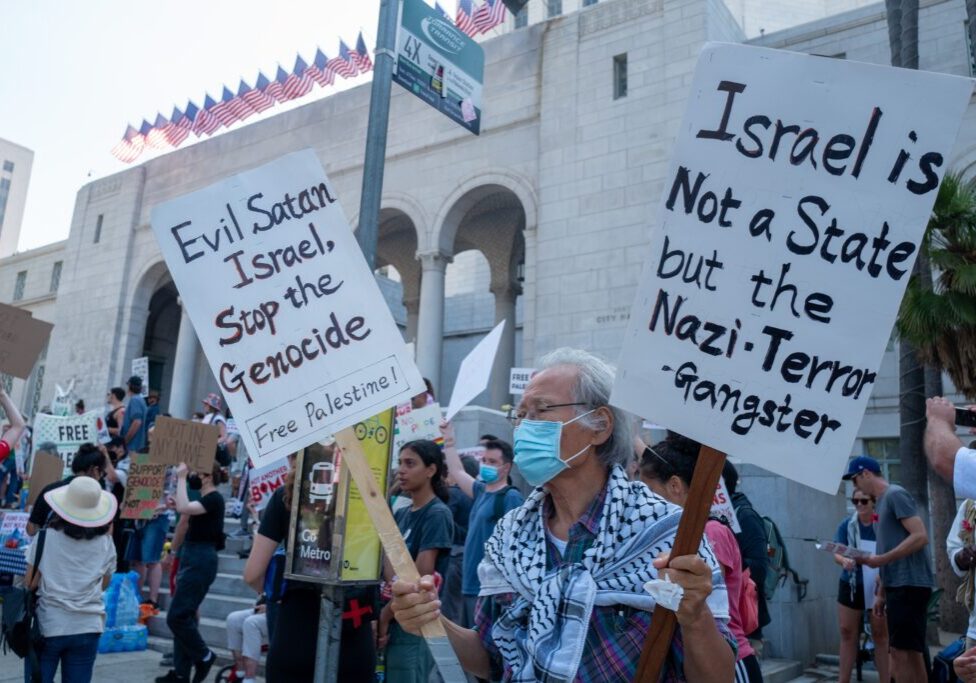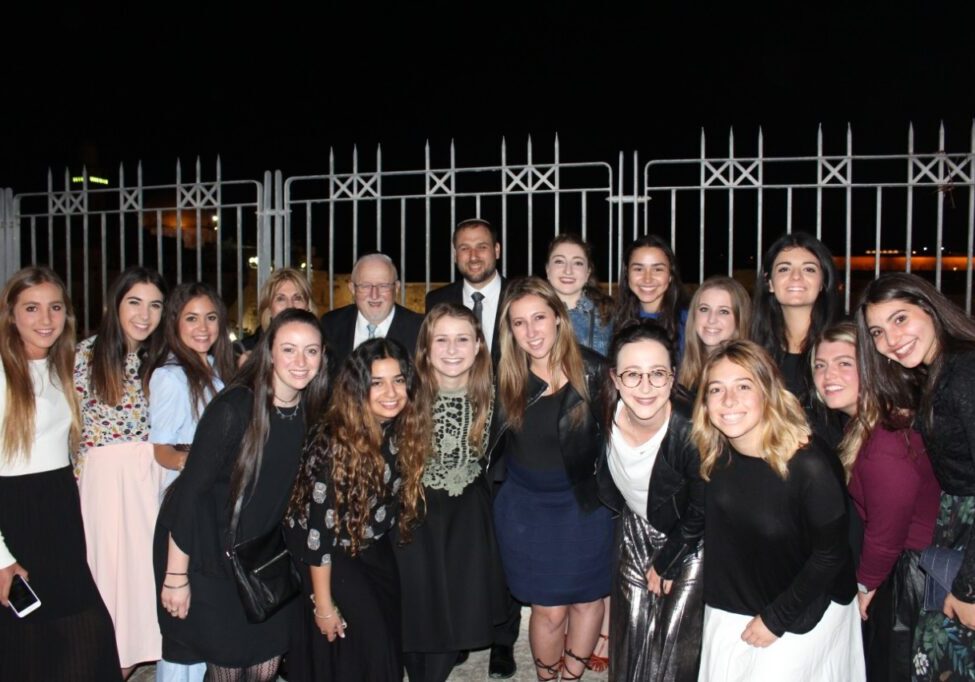Australia/Israel Review
Essay: “Anti-Zionism” and “Antizionism”
Aug 4, 2023 | David Hirsh
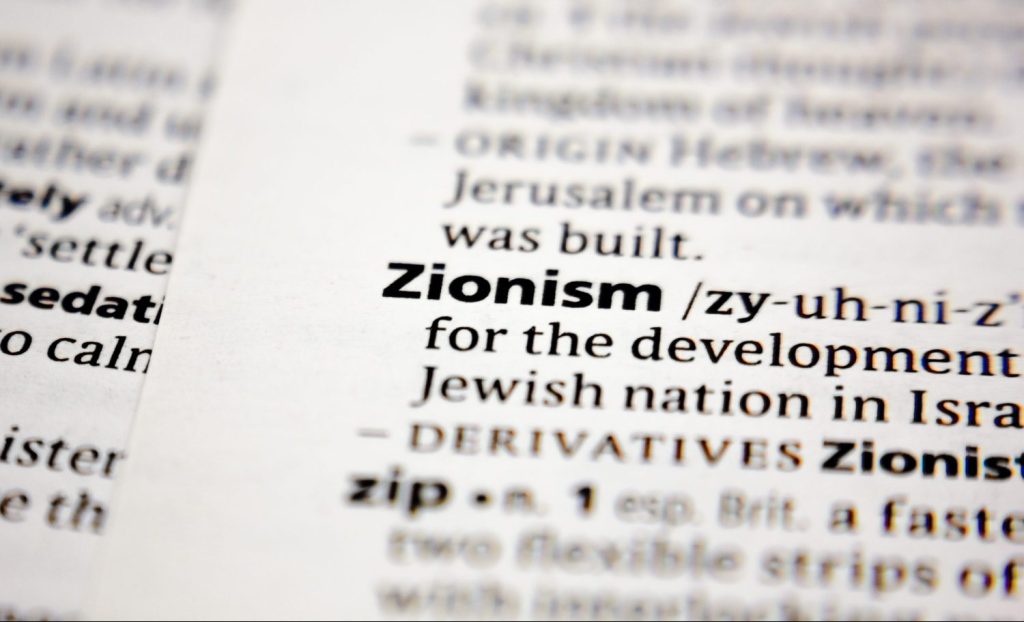
The anti-Jewish worldview behind anti-Israel obsessions
Antisemitism replaces the infinite diversity of Jewish men and women with a single “the Jews”, which it imagines acts as a unified, hidden and evil force in the world. Antizionism, when it loses sight of the Jews who actually exist, and of the Israel that they actually built, does something similar. It refuses to see Israel in its complexity – contradictory, flawed and majestic – and it misses the overwhelming majority of Jews for whom Israel is, in one way or another, a part of their Jewish identity.
Instead, antizionism draws its own grotesque caricature of Zionism as a single, monstrous, universal evil, and it constructs a whole worldview, or ideology, in relation to that demonic fantasy of Jewish nationhood.
THE HYPHEN: ANTI-SEMITISM AND ANTISEMITISM
Bear with me – this stuff about hyphens is not as pretentious or arcane as it sounds.
We write “antisemitism” rather than “anti-Semitism” because there is no “Semitism” out there in the world that antisemites oppose.
The thing they oppose is their own invention. They oppose the antisemitic notion of “the Jews”. Actual Jewish people are diverse – they have different appearances, skin colours, beliefs and religious practices; they speak different languages and they are at home in different nations and classes. Antisemitism imagines Jews as being all the same, it sees any Jew as part of the same menacing conspiracy, it makes every Jew into a tentacle of one monster.
For example, the notion that the Jews control Hollywood assumes that all Jews in the movie business act in a collective, secret and malevolent, Jewish interest. They don’t, they each do their own thing.
The term “anti-Semitism” was invented by an antisemite to name his own worldview. We now write it without the hyphen to emphasise that antisemitism is an ideology, a way of understanding the world that is based on fantasy, rather than a critique of something that exists. Antisemitism imagines “the Jews” as the key to history, insisting that if you don’t understand the Jews then you cannot understand how the world really works. But this notion of “the Jews” is something different from the actual diversity of Jewish men and women, although this does not stop them targeting the latter in the hope of overcoming the former.
THE HYPHEN: ANTI-ZIONISM AND ANTIZIONISM
By contrast with “Semitism”, there is a Zionism that exists in the world and an anti-Zionism, which was a critique of it. Really there are many Zionisms and many anti-Zionisms. But there is also an “antizionism”, without a hyphen, which invents a “single” Zionism of pure, powerful, evil, in a way that is analogous to antisemitism’s invention of “the Jew”. This antizionism is a boundless ideology or worldview. Its concern is not confined to the prospect of Jews organising politically in their own defence or to the fate of Palestinian Arabs. The threat of this “Zionism”, which is conjured in the antizionist imagination, is universal. Antizionism imagines Israel as being central to, or symbolic of, every political or ideological corruption, cruelty or injustice on the planet. For antizionism, Zionism stands between humanity and progressive change and it threatens us all.
The way Ayatollah Ruhollah Khomeini, the former “supreme leader” of Iran, used the concept of Zionism made this clear. Referring to Jerusalem by its Arabic name, Al Quds, Khomeini declared: “The Quds Day is a universal day. It is not an exclusive day for Quds itself. It is a day for the oppressed to rise and stand up against the arrogant.” The day is marked annually with an antisemitic demonstration in Teheran, as well as similarly themed events in the centre of many free cities.
Steven Salaita, an antizionist academic, uses the term “Zionism” in the classically antizionist sense:
“Zionism is part and parcel of unilateral administrative power. It lends itself to top-down decision-making, to suppression of anti-neoliberal activism, to restrictions on speech, to colonial governance, to corporatization and counterrevolution—in other words, Zionism behaves in universities precisely as it does in various geopolitical systems.”
Making the distinction between anti-Zionism, as a response to Zionism, and antizionism, as an anti-Jewish way of understanding the world, helps us to think clearly about the politics that come with the relentless focus on Israel that we see around us on the left.
ZIONISM
The 20th century reinforced the lesson that history had taught many people in the 19th: that guaranteeing individual rights requires national self-determination. Nation-states were formed in Europe in the image of modern France, which was constructed, institutionally and emotionally, by the French Revolution. Later, it was often national movements across the world that resisted colonial rule. Nations also struggled to regain self-determination against 20th century totalitarian occupation.
Today, it feels natural to Ukrainians to defend themselves collectively under the yellow and blue flag and it feels natural to Vladimir Putin to delegitimise Ukrainian statehood. Russian propaganda says that Ukraine is not an authentic nation, that it is invented by imperialism and that it is inherently Nazi. It deploys the antizionist discourse against Ukraine that the Soviet Union originally codified against Israel.
Some antizionists have long said that Zionists are not really Jews at all, but Khazars, a semi-nomadic Turkic people. Some of them have recently claimed that Ukrainians are also Khazars, most notably its Zionist President, Volodymyr Zelensky. They have thus found a way of portraying both of the inauthentic, Nazi, pro-imperialist, ersatz nations as a single, “racially” identical, threat.
In the late 19th century, Theodor Herzl proposed that Jews should address the problem of living in antisemitic hostile environments by re-constituting their ancient national sovereignty, in a modern way, in Israel. Herzl had been part of the crowd that gathered to watch the public, antisemitic humiliation in Paris of the Jewish army officer Alfred Dreyfus. He was aware of the pogroms’ gathering threat in the East.
Since defeat in Roman times and the destruction of the Second Temple, some Jews always stayed in, or close to, Jerusalem (“Zion” in Hebrew scriptures), but many were dispersed all around the world, in the diaspora. Herzl called his programme for return, “Zionism”.
Some Zionist pioneers had already settled in Israel by the time the Nazis ruled Europe. Tel Aviv, founded in 1909, was growing as a predominantly Jewish city under the British Mandate. Jews had been returning to Jerusalem, and to other places too. Many lived in the kibbutzim, utopian socialist communities where the land and the means of production were owned in common and the gendered division of labour would be abolished.
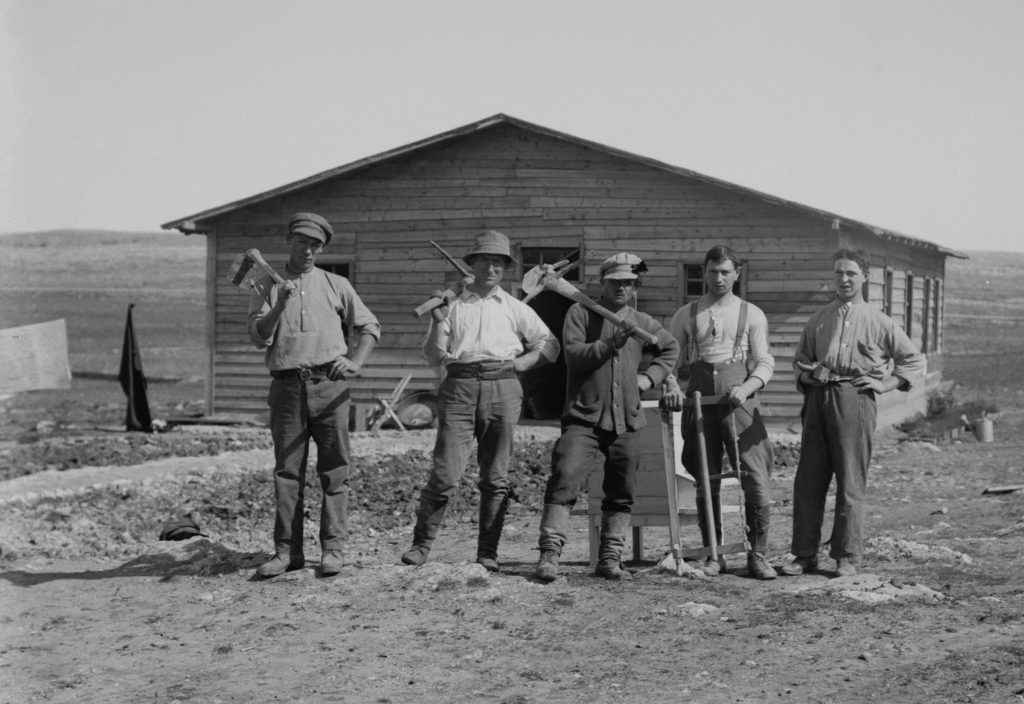
Zionist pioneers in Mandatory Palestine c. 1920s (Image: Shutterstock)
The key critique of Zionism at this time was that it was utopian. Zionism, it was said, had identified no social mechanism by which Jews would uproot themselves from their homes to move to Palestine.
Antisemitism was familiar, but not many yet feared an antisemitism capable of sweeping Europe, the Middle East and Russia clean of Jews. A Zionist, went the old joke, was a Jew who donated money to a second Jew so that a third Jew could go and live in Palestine. As late as 1940, Leon Trotsky’s judgement was that, with the British becoming more interested in “winning the sympathy of the Arabs,” migration into Palestine might turn out to be a “bloody trap” for Jews.
Most Jews were not serious about going to Israel until staying where they lived became terrifying. The foundation of the State of Israel was as much a result of the profound changes visited upon Jewish life as it existed in the middle of the 20th century as it was a result of the dreams of Herzl and the other men whose names now appear on the street furniture in every Israeli town. Israel was created by huge and murderous material factors as much as it was by an idea.
As the threat of the Holocaust approached, Palestine was one of the few places where Jews might find refuge. And, for the undead Jews of Europe, who limped away after the defeat of Nazism, it was one of the places where they could go; if they were not first interned in Cyprus on their way there by the British Empire. Many Jews expelled from their homes around the Middle East subsequently found refuge in Israel, and, later still, many Russian Jews, whose Jewishness had been suppressed by the Soviet Union, found their way there too.
Before the Second World War, there had been significant Jewish and Arab migration into Palestine. As well as cooperation and economic growth involving both communities, there had also been conflict between them. In November 1947, the UN voted to divide the territory of Mandate Palestine to allow the foundation of the State of Israel. Israel accepted this compromise, but the Arab League did not. Instead, within hours of Israel declaring its independence in May 1948, it invaded and attempted to destroy the newly born state, but the Arab armies were pushed back.
Over the next few years, hundreds of thousands of Jews were pushed out of the ethnically or religiously defined ‘Arab’ and ‘Islamic’ states of the Middle East and many found refuge, or a new home, in Israel. Israel defeated two further attempts by the Arab League to destroy it in 1967 and 1973. Land that had been occupied by Jordan and Egypt after 1948 was then occupied by Israel in 1967. Some of it was returned to Egypt after the 1978 Camp David Accords and some was ceded, it turned out, to Hamas, in 2005.
After 1948, Arabs who lived in Israel, about 20% of the population, were recognised as full citizens while others who had been pushed out, or who had fled the fighting, were not allowed back. Since 1967, Israel has retained control of the West Bank and east Jerusalem, where many Arabs lived, and it protects and enables the settler movement there.
In the 1990s, at Camp David in 2000 and in 2008 Israel offered to bring the settlers home and to cede Gaza and the West Bank to a new Palestinian state, but those offers were not accepted by Palestinian leaders.
“ANTI-ZIONISM”
“Anti-Zionists” were Jews who argued against the idea of Zionism. Some opposed it on the basis of universalistic socialism, others favoured Bundism, a cultural and political reconstitution of Judaism and Jewish self-defence, where they already lived. Religious anti-Zionism opposed the secularisation of the mystical yearning for Israel into a worldly politics. Many Jews aspired either to assimilation where they lived or to migration to western Europe or America.
Zionism also attracted Jews across the Middle East, and, there too, there were other Jews who opposed it. Debates raged, but they were never settled in the realm of ideas.
In Europe, they were settled by the Holocaust. Jews were murdered irrespective of their politics and aspirations.
Anti-Zionism, with the hyphen, a critique of the idea of Zionism, was ended as a practical movement by the Holocaust and by the creation of the State of Israel. Some Jews later began to use vocabulary of anti-Zionism again, and many other people around the world assimilated that vocabulary to themselves, but the movement to destroy an Israeli nation-state that now existed was, in content, quite different from the pre-Holocaust critiques of the idea of Zionism.
Arguing about how Jews should respond to antisemitism was one thing; hoping to delegitimise a nation-state that existed, and working for its destruction, was another. Who was utopian now? Anti-Zionism said that it just wanted a single territorial state in the whole of Mandate Palestine, that would be secular and democratic. But how could that come about?
Most Israelis are descended from families so powerless that they had been ethnically cleansed from their homes. Their human rights were ignored when they didn’t have the power to enforce them; and they discovered that nobody else would enforce them either. They had also experienced three attempts by Arab nationalist armies to destroy Israel, stopped only by Israeli self-defence. So how would anti-Zionism persuade Israelis to dismantle their state and to dissolve themselves into a national community in which Palestinians might be the majority? The answer is that if anti-Zionism depended on persuading Israelis, then it was a passive and a long-term aim that had nothing to say about what should happen now.
In reality, the only way to dissolve Israel into a larger state would be without the consent of Israelis – in other words, by conquest. Conquest has been unsuccessful, and it is inconceivable that it would lead to either a democratic or a secular state. If anti-Zionists find a way to rewind the film of history to a time before Israel existed, perhaps they could rewind a little further, to before Jews were suffocated by communism, expelled as not belonging to the rest of the Middle East, and fed into a pan-European factory system of murder.
“ANTIZIONISM”
Counterintuitively, antizionism is as old as anti-Zionism, and it may be older still. If anti-Zionism was a legitimate, rational, critical engagement with Zionism, there was always also antizionism: an irrational, phobic, response to even the earliest sparks of Jewish political self-organisation.
When does criticism of Israel cross the line into antisemitism? If antizionism is a worldview that defines itself in relation to a demonic, fictional, Zionist other, then even a little bit of it is too much. But if it is a critical, measured, rational engagement with Israeli policy and culture, then it would not cross a line into antisemitism, no matter how much of it there was.
Is too much criticism of British PM Rishi Sunak racist? Is too much criticism of former British PM Liz Truss sexist? No, it depends on the type, not the volume, of the criticism.
It depends on what is said, and how it is said; it depends on what unsaid messages or dog whistles are allowed, or designed, to slip between the words. It depends on the emotional register of the discourse.
That is not to say that it is always easy to distinguish between criticism and antisemitism. There is certainly legitimate disagreement about what is antisemitic, or racist or sexist, and what is not.
It is true that it sometimes looks like an issue of quantity. Take, for example, the manner in which the number of UN resolutions denouncing Israel outstrips all of those denouncing the actual serious human rights abusers put together. The ferocity of rhetoric denouncing Israel is, in some spheres of life, much greater. But, first, read what the resolutions say and analyse the content of the denunciations as well as the amount: there is something else going on
And, second, we need to make sense of the ostensibly quantitative component. Criticism is hotter; it is more abundant; it is disproportionate; it is more emotional; it is more self-certain. Taken together, and in the complexity of real-world context, this is not just more, it is indicative of something different going on: maybe antisemitic motivation, whether conscious or not; maybe antisemitic effect of the normalisation of this kind of disproportionality; maybe a reluctance even to think about antisemitism.
THE LIVINGSTONE FORMULATION
It is easier to know what’s what when we know which side we ought to be on.
We all know that racism and sexism are disgraceful because in our liberal, left, democratic or scholarly political communities, there is strong consensus on these issues.
By contrast, a divide over what is antisemitic cuts across those political communities. There are antisemites within liberal, left, democratic and scholarly communities but they are unaware of it and they angrily deny it. They think that the people who denounce them for antisemitism are making it up because they are the supporters of racism and apartheid, who want to hide the truth.
Indeed, it is quite a reliable indicator of a problem when you see people who only denounce the antisemitism in the political communities that they already despise. To only recognise it “over there”, is to fail to recognise, and to whitewash it, “over here”. First clean your own movement; only then, accuse the other side of having a problem.
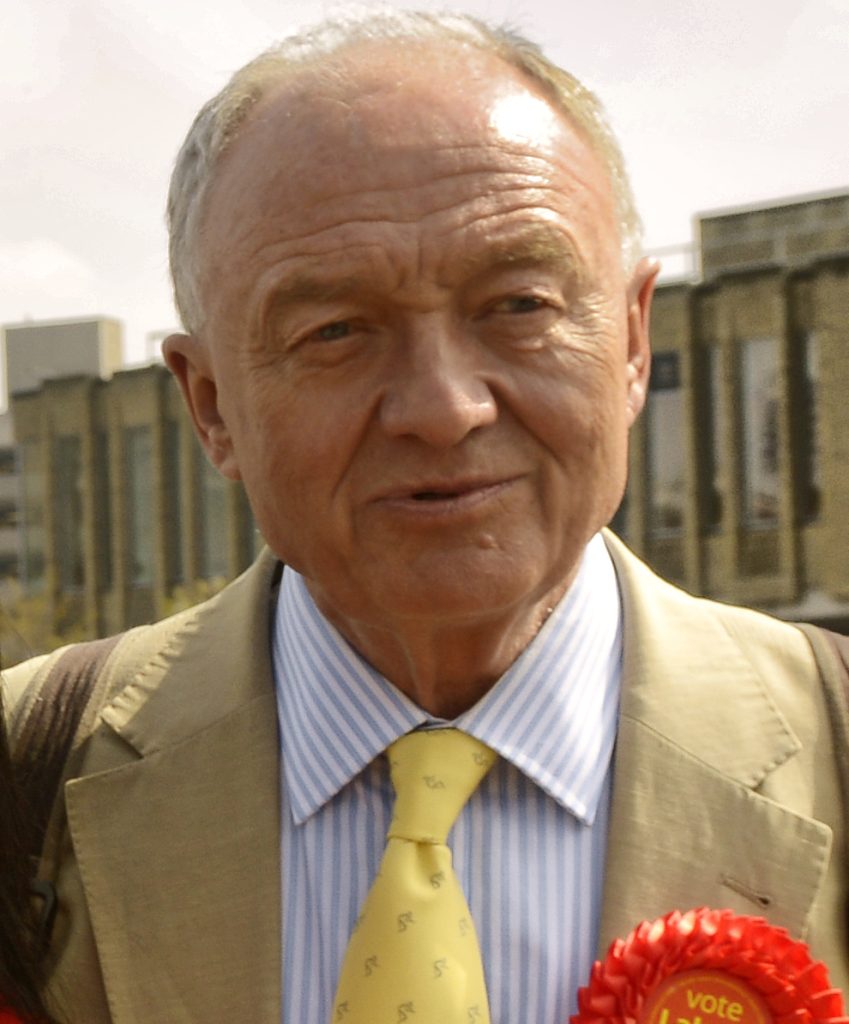
Former London mayor Ken Livingstone (Image: Wikimedia Commons)
Back in 2006, the then-mayor of London, Ken Livingstone, was rightly challenged for some antisemitic remarks he had made, although they were relatively trivial. They had nothing to do with Israel. His response was interesting: “For far too long the accusation of antisemitism has been used against anyone who is critical of the policies of the Israeli government, as I have been.”
It was a means of justifying his refusal to even engage, by means of an ad hominem counter-attack, which claimed that those who brought up the issue of antisemitism were doing so in bad faith, knowing that it was not true.
Most political people know how to deal with the sexist who responds that the feminist hates men. They know too how to challenge the racist who responds that the liberal is trying to silence his criticism of affirmative action, or of ‘cultural Marxism’, or whatever it might be. But antisemitism cuts across the left and the right and there is no such consensus. The antizionist, accused of antisemitism, counter-accuses Jews and their allies of trying to delegitimise criticism of Israel or of “weaponising” antisemitism against decent people who support the Palestinians.
They accuse the person who raises the issue of antisemitism of “Zionism”. They do not mean by this the diverse ways in which Israel is part of the Jewish identity of most Jews; they mean the homogenous, disgraceful Zionism of the antizionist imagination, which means “racist”, “supporter of apartheid”, “supporter of colonialism” and “dishonest and bad person.”
When Zionism is denounced in these terms, Jews are generally well aware that the denunciation points the finger at them, and not just at the abstract Zionists of the antizionist imagination. The accusation of Zionism deports most Jews from the “community of the good” and it makes them politically homeless.
Most antisemitisms in history have allowed clemency for exceptional “good Jews” and this one does too. Jews who affirm, in the terms offered by antizionism, that Israel is an apartheid state, must be dismantled, and that accusations of antisemitism are part of a mendacious Zionist conspiracy, may be given leave to remain, for the moment, in the community of the good.
The accusation that Jews who say they have experienced antisemitism on the left do so because they are enemies of the left is a clear violation of the “Macpherson Principle”. This is the principle that says that people who report experiencing racism should be taken seriously.
The Livingstone Formulation creates an assumption that unless Jews disavow Israel and whitewash antisemitism, they should be assumed to be enemies of the left and of the Palestinians. The accusation against such Jews is that they pose as members of the union or of the party, but that really they are only pretending, in the hope of creating opportunities to weaken those institutions.
The Livingstone Formulation does not say that Jews are sometimes over-sensitive and that sometimes they get it wrong. Instead, it says that they make it up in the hope of silencing criticism of Israel.
The report of Britain’s Equalities and Human Rights Commission (EHRC) on Labour Party antisemitism, released in 2020, specified the following as a type of antisemitic conduct that amounted to “unlawful harassment” of Jews:
Suggesting that complaints of antisemitism are fake or smears. This conduct may target Jewish members as deliberately making up antisemitism complaints to undermine the Labour Party, and ignores legitimate and genuine complaints of antisemitism in the Party.
The Macpherson Principle does not say that every accusation of racism must be true, it simply requires they should be heard and investigated on the assumption that they were made in good faith. The EHRC report recognised that the Livingstone Formulation was regularly used against Jews in the UK Labour Party under the leadership of Jeremy Corbyn (2015-2020) and it observed that its effect was to accuse Jews of disloyalty. Offering exceptional status of belonging to the tiny minority of Jews who are willing to repeat the demonising phrases of antizionism does not address the problem.
It is still common to hear people affiliated with British Labour say that the new leadership of the party, the right, the Blairites, the Tories, or whatever name is given to people deported from the community of the good, weaponise or fake antisemitism as a smear against Corbyn, the left and the Palestinians. References to antisemitism in the party as a “scam” are common.
But it must be remembered that there was an overwhelming consensus amongst UK Jews that it was real. The effect of this denial is to paint that consensus as being somehow dishonest, racist and hostile to the left. A culture that positions Jews in that way, that teaches that view of Jews to its children, is an antisemitic culture.
David Hirsh is senior lecturer in sociology, Goldsmiths, University of London, and academic director and CEO of the London Centre for the Study of Contemporary Antisemitism. The above is republished from a UK Labour Friends of Israel briefing paper. © David Hirsh, reprinted by permission, all rights reserved.
Tags: Anti-Zionism, Antisemitism


